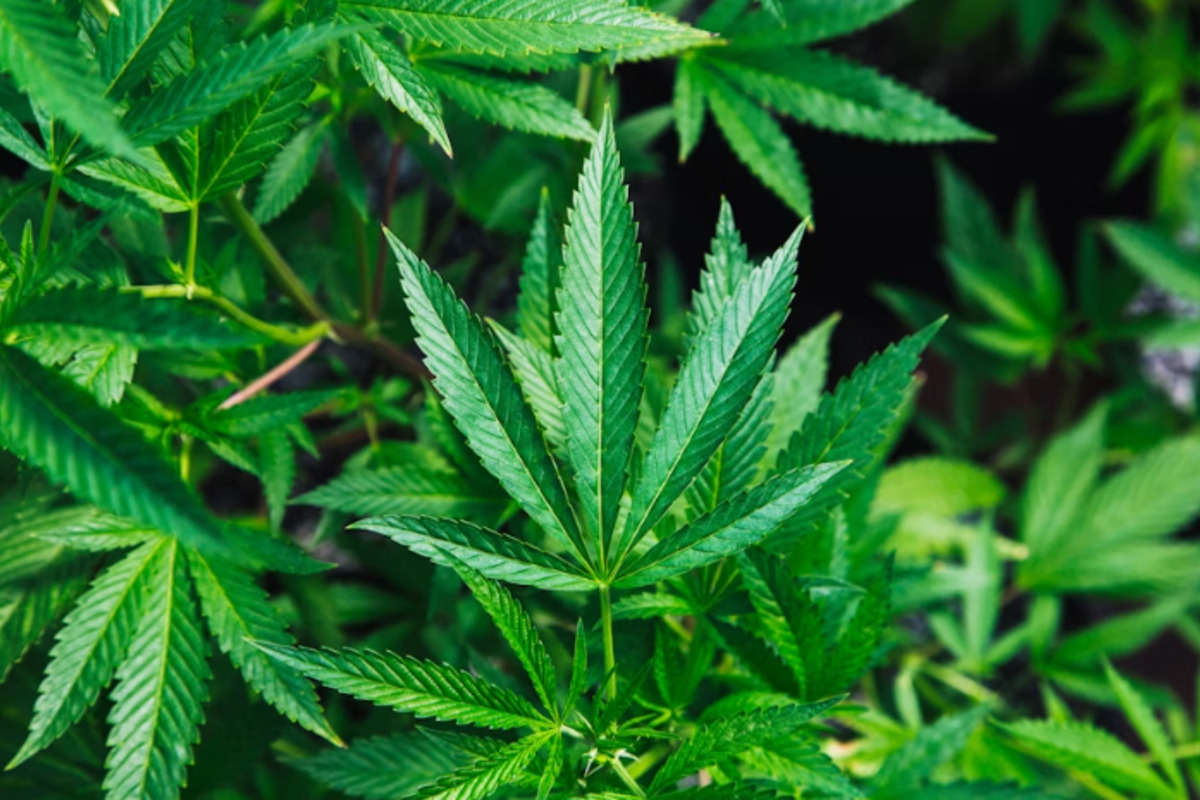- Baked In
- Posts
- 🌿 The Pen Is Mightier Than The Sword (We Hope)
🌿 The Pen Is Mightier Than The Sword (We Hope)
GM Everyone,
Whether or not we want to admit it — THC is currently engaged in a Civil War.
💸 The Tape
In a heavyweight political move, a newly formed coalition of professional athletes and entertainers—led by retired boxing legend Mike Tyson—has stepped into the ring to urge President Donald Trump to finish what he started on cannabis reform and deliver the knockout blow to Joe Biden’s lagging marijuana policy record.
The group, called the Coalition of Athletes and Entertainers Supporting President Trump’s Policy Objectives, features big-name talent like Kevin Durant, Allen Iverson, Wyclef Jean, and NFL stars like Ricky Williams, Dez Bryant, and Antonio Brown. Their ask? Reschedule cannabis, expand pardons, and fix the financial discrimination facing legal weed operators.
In a letter sent to Trump and first reported by Fox News, the group praised his past clemency work—most notably the pardon of Weldon Angelos, a cannabis prisoner-turned-activist. But they made it clear that Trump’s next act could be his most impactful yet, urging him to reschedule cannabis from Schedule I to Schedule III under the Controlled Substances Act and enact mass clemency for those still incarcerated for nonviolent marijuana offenses.
“Today, people continue to serve lengthy federal sentences for conduct that is now legal in most states—which makes their continued incarceration not only cruel but absurd,” the coalition wrote, calling Biden’s inaction on cannabis clemency “a betrayal.”
Weldon Angelos, who’s emerged as a bipartisan reform leader, said Trump and newly appointed pardon czar Alice Johnson are uniquely positioned to deliver long-overdue justice. Tyson echoed the sentiment in a recent Trade to Black interview, calling cannabis reform a “powerful revolution” and expressing confidence that this administration could pull it off.
The coalition also spotlighted the economic chokehold faced by the cannabis industry: no access to banking, crippling tax burdens, and exclusion from U.S. exchanges—all while foreign cannabis companies trade freely on the NYSE and Nasdaq.
“Despite operating legally in 40 states, employing over 450,000 Americans, and generating $35 billion annually, cannabis operators are boxed out of financial services,” they wrote.
While Trump’s current administration has so far stayed mum on rescheduling, his first-term AG pick Matt Gaetz has been vocal in supporting it, seeing it as a strategic wedge issue with younger voters.
With support from mainstream athletes, entertainers, and cannabis entrepreneurs, this coalition’s push represents not just a public plea—but a political playbook. Will Trump listen? If he does, he could corner the cannabis vote and leave Biden reeling.
📈 Dog Walkers.
Thailand Go BANanas
What’s Going On Here: Thailand has reversed course on its cannabis policy, implementing a ban on recreational sales just three years after decriminalization. A new order signed by Health Minister Somsak Thepsutin reclassifies cannabis buds as a controlled herb and restricts sales to prescription-only patients. Licensed shops must now source products exclusively from certified pharmaceutical-grade farms and report supply origins monthly. Violators face up to one year in jail and a 20,000-baht ($614) fine.
While roughly 18,000 dispensaries remain technically operational, widespread confusion persists among operators and officials alike. Advocates argue the issue stems from poor enforcement of existing laws, not the absence of regulation. Critics say the timing of the policy shift is politically motivated, following the Bhumjaithai Party’s exit from the governing coalition.
Officials cite rising concerns over youth access, addiction, and tourist smuggling. Health officials suggest cannabis could eventually be re-listed as a narcotic. Activists plan to rally next month in protest, warning the rollback threatens Thailand’s growing cannabis industry and global reputation.
California Going Up In Smoke
What’s Going On Here: Californians buying legal cannabis will soon face higher prices as the state’s cannabis excise tax increases from 15% to 19%, effective July 1, 2025. The California Department of Tax and Fee Administration (CDTFA) is implementing the hike as required by state law, marking the first adjustment since the tax was introduced.
The higher rate compensates for revenue lost when the cultivation tax was eliminated in 2022. Under current rules, the excise tax is applied after any local cannabis business taxes, increasing the total cost to consumers.
Despite the upcoming bump, California’s cannabis market is facing softening sales. In 2024, the excise tax still generated nearly $595 million, funding programs focused on early childhood, addiction treatment, and environmental initiatives.
A bill is currently moving through the legislature that would freeze the tax at 15%, but with the July 1 deadline looming, its passage remains uncertain.
🗞️ The News
📺 YouTube
The Week’s Biggest Cannabis Headlines – From Abbott to AYR Wellness | TDR Weekly Recap
What we will cover:
✅ Host Shadd Dales breaks down the biggest cannabis stories shaping politics, markets, and reform for the week of June 23, 2025.
We start in Texas, where Governor Greg Abbott just signed a bill expanding medical marijuana access — adding chronic pain, TBI, and Crohn’s disease to the Compassionate Use Program. The number of dispensaries is increasing from 3 to 15, with new delivery formats allowed. But Senate pushback stripped out broader access for veterans and blocked health agency expansion powers.
Meanwhile in Washington, Rep. Andy Harris is pushing a federal spending bill that could ban most hemp-derived THC products, including compliant cannabinoids under the 2018 Farm Bill. Even the alcohol industry is warning Congress this could destroy thousands of jobs.
On the federal side, Congress took historic steps to expand veteran access to cannabis and psychedelic therapy, with bipartisan support and key amendments passing the House. The Senate is now under pressure to act.
New tax data proves that legalization is working — $24.7 billion in state cannabis taxes since 2014, and youth use is dropping in most legal states.

